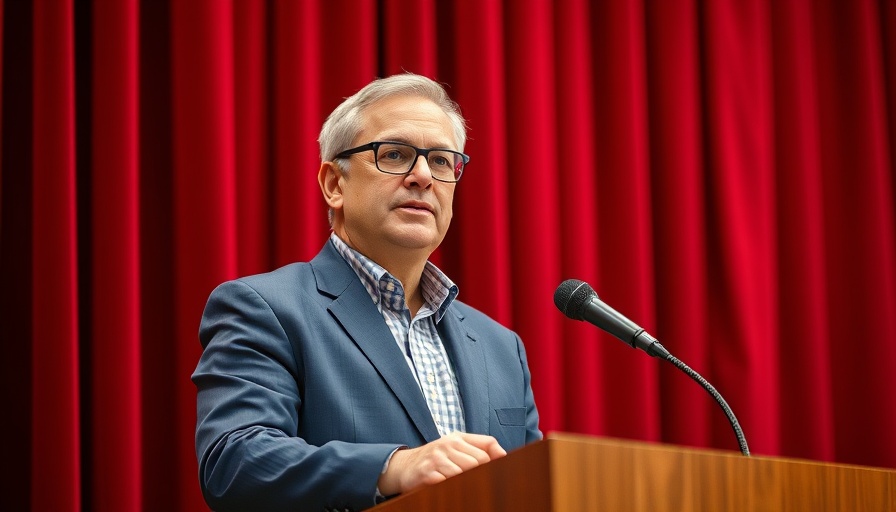
The Impact of Federal Funding Cuts on Scientific Research
Dr. Ardem Patapoutian's journey as a Nobel Prize-winning scientist underscores the increasing strain on research funding in the United States. Renowned for his pivotal discoveries regarding sensory receptors, Patapoutian's work seemed well-supported until federal budget cuts during the Trump administration dramatically altered that landscape. The National Institutes of Health (NIH) saw a staggering $1.5 billion reduction, a move that not only threatened the viability of research institutions but also raised concerns regarding the future of biomedical advancements in the country.
The Dilemma of American Scientists
Faced with inherited instability in funding, many scientists, including Patapoutian, voiced alarms regarding the potential exodus of talent from the U.S. academia. In an age where global competition for groundbreaking research is fierce, the opportunity for such professionals to relocate to countries like China — which offered Patapoutian 20 years of guaranteed funding — becomes a viable option. This shift raises questions about America's place in global science and innovation. While Dr. Patapoutian ultimately chose to remain in the U.S. for personal reasons, his experience highlights a troubling trend: younger scientists may feel they have no choice but to seek stability abroad.
Insights from the Global Research Environment
China's aggressive investment in research and development reflects a broader global trend. According to various studies, nations around the world are increasingly prioritizing funding for science, technology, engineering, and math (STEM) initiatives. In contrast, the ongoing cuts to American research funding could place the U.S. at risk of losing its status as a global leader in innovation. As emerging scientists observe the landscape, their decisions could shape the future of research and development. The implications extend beyond mere financial viability; they touch on potential national security issues related to scientific advancements and technological independence.
Evaluating the Future of U.S. Science Funding
What does Dr. Patapoutian's experience suggest about the future of U.S. scientific research? The continual rise of alternative funding sources presents both challenges and opportunities. As institutions scramble to fill the funding gaps left by federal cuts, the reliance on corporate sponsorships and international partnerships may increase. While this shift might ensure continuity in research, it also raises ethical questions regarding influence and control in scientific integrity. Scientists may find themselves navigating complex waters where their work is contingent upon the interests of private firms or foreign governments.
Adapting to New Realities in Academia
As the landscape shifts, it's essential for academics to stay engaged with policy, ensuring their voices are heard in crucial funding discussions. Grassroots initiatives advocating for increased research funding are more vital than ever. If institutions are to thrive, building robust support systems for researchers can help mitigate the uncertainty they face. Professors and researchers, along with students, must become advocates for a more sustainable system that fosters innovation without compromising scientific integrity.
Importance of Supporting Domestic Research
In light of these challenges, appreciating the value of U.S. scientific research is crucial for the general public and policymakers alike. Initiatives aimed at protecting and reinforcing domestic research capabilities are not mere niceties; they are foundational for national growth, health advancements, and security. It demands collective awareness and action to ensure scientific inquiry continues to prosper, enabling the next generation of scientists to flourish in their home country.
 Add Row
Add Row  Add
Add 




Write A Comment